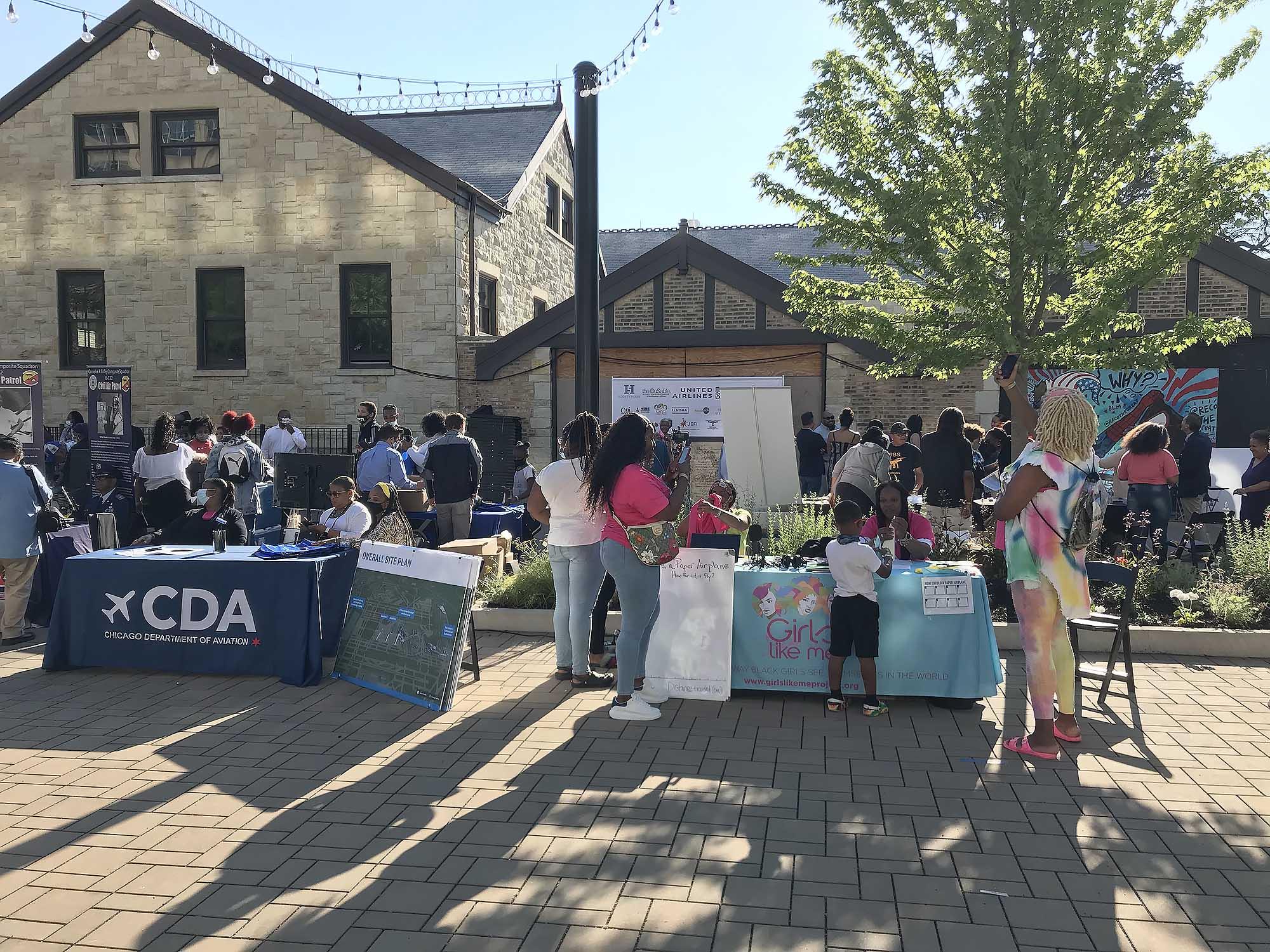
A century has passed since Bessie Coleman became the first African American woman to earn a pilot’s license, and on the centennial of that milestone, the community where she was raised came together to work toward ensuring that underrepresented populations continue pursuing careers in aviation.
AeroStar Avion Institute, a Chicago-based youth aviation education nonprofit, held a Bessie Coleman 100th Anniversary Celebration on June 15 at the DuSable Museum of African American History on the south side of Chicago. The event focused on celebrating black aviators and providing access to information about potential aviation careers to youth in underserved communities. Exhibitors from local aviation companies and diversity-focused STEM organizations were on site to speak with local youth and their parents about potential aviation career pathways.
Jon Igartua, an aerospace engineer at Rexnord Aerospace, a Chicago area supplier specialized in aircraft components, says the company has had challenges filling its future workforce pipeline. He notes that it is hard to find skilled trade workers such as machinists and that many children do not have exposure to engineering and aerospace-related careers. AeroStar has worked with aviation industry companies such as AAR to tackle these challenges for around a decade.
The event comes on the heels of a milestone for the AeroStar-AAR partnership. The two organizations launched a program at Chicago’s Olive-Harvey College in 2019 to provide pathways to aviation maintenance careers for students from underserved communities. The program’s sixth cohort of aviation technician students just began classes on June 14, where they will receive hands-on training with aircraft sheet metal and a guaranteed interview at AAR. AeroStar and AAR are now getting ready to launch a high school component to the cooperation, which will incorporate aviation maintenance curriculum into the nonprofit’s high school programs.
According to Tammera Holmes, AeroStar Avion Institute’s founder and CEO, more aviation companies need to take tangible steps toward increasing the diversity of their workforce pipelines instead of just talking around the problem.
“There are a lot of organizations that express that they really want to be diverse and inclusive, but what ramifications have they put in place for accountability when it comes to diversity, equity and inclusion?” says Holmes.
One company she says is on the right track is United Airlines, which sponsored the Bessie Coleman event. The airline recently pledged to train 5,000 new pilots by 2030, at least half of which will be women and people of color. Through its United Aviate Academy, the airline has committed to fund $1.2 million in scholarships to break down financial barriers for underserved populations and meet that goal.
AeroStar and AAR are working to drive change on the aviation maintenance side of the workforce pipeline, particularly when it comes to concrete educational and career pathways. In Chicago, the only schools currently offering aviation maintenance programs are based in the western suburbs, which can be inaccessible for youth in urban Chicago who rely on public transportation.
“AeroStar has been running aviation programs after school for years and students leave our program with no license, certificate or credential, but they’re taking nine hours of aviation [curriculum] for three hours every day for 20 weeks,” says Holmes. “We have to continue to figure out how to create these post-secondary partnerships that lead towards licenses, certification and credentials.”
Opportunities may soon change when the Aviation Institute of Maintenance (AIM) opens its newest campus in Chicago. The school just received approval from the Illinois Board of Higher Education to establish its new campus, which will open in September. Holmes says AeroStar and AAR were a driving force behind bringing AIM to Chicago, pointing out to the school that the city has a pipeline of diverse, high quality talent with limited access to an aviation maintenance school.
AeroStar has also branched out from Chicago to Northwestern Indiana through a partnership with Boeing and Holmes says the nonprofit has started seeing international interest as well in regions such as Africa and the Caribbean.
“Aviation is global, and the [workforce] shortages are global. There are persons of color and women around the world who still lack opportunity and access,” says Holmes. “This is not an American problem or a black or white problem. The industry needs talent, and it’s high time that we stop looking for the tall, white male with the aviator shades and leather jacket and start looking for individuals who are highly talented and qualified to be able to deliver the talent to the industry.”





